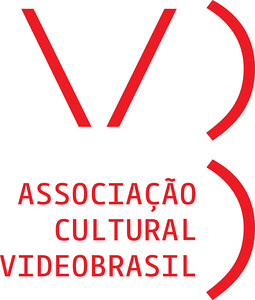Sacudimentos
October 5–November 5, 2020
Marked by the desire to confront and shake off the injuries of the colonial past, Ayrson Heráclito’s production is at the center of the exhibition Sacudimentos, which will launch on October 5 on Videobrasil Online, and will be available for open streaming for 30 days. The group of ten key works produced between 2004 and 2018 inaugurates the Artists series, one of the platform’s focal points, which will feature monthly content that revisits or dialogues with works from the institution’s historical collection.
The rituals and symbology of Candomblé, which Heráclito has practiced for nearly 30 years, are ubiquitous throughout his works, which range from exploring the organic matter mobilized by Afro-Bahian rites to resorting to their performatic trait, of an act that conjures and reorganizes energies and memories. In a very particular contribution to decolonial practices, the artist uses the very medicine that the enslaved people brought from Africa to poetically shake off and transfigure the legacy of slavery.
The exhibit celebrates Heráclito’s numerous collaborations with Videobrasil, in works such as Barrueco (2004), an allegory of the crossing of the Atlantic made with Danilo Baratta; As mãos do epô (2007), which explores the symbology of dendê (palm oil); and Funfun (2012), a requiem for a priestess from the Recôncavo Baiano, awarded by the Festival with an artistic residency in Dakar. From his stint in Senegal emerges Sacudimentos (2015), presented at the 57th Venice Biennale. In this work, the artist performs rituals to “expel historical ghosts” on landmarks of slavery in Brazil and Senegal.
The mystical connection that unites nature and divinity and the transforming property of rites—the two cornerstones of Candomblé—are found in other works of the selection, such as Baobá: o capítulo da agromancia (2015), from the História do futuro series, also made in Senegal, A floresta em transe (2018), Ogum (2018), Batendo Amalá (2013) and Buruburu (2010). In Baía de Todas as Santas (2017), Heráclito engages with the experimental work by the German ethnologist and poet Hubert Fichte, who immersed himself, in the 1970s, in the universe of African religions and the homosexual underworld of Salvador.
Launched in September, Videobrasil Online aims to expand access to the contemporary artistic production of the global South in times of reduced mobility and revised paradigms. In addition to the Artists series, which sheds light on prominent names in the collection, Videobrasil Online offers such programs as Curatorships, with works selected by invited curators, and Docs, featuring documentaries on contemporary art. Each program is available for 30 days, and is accompanied by a web of additional text and video content.



